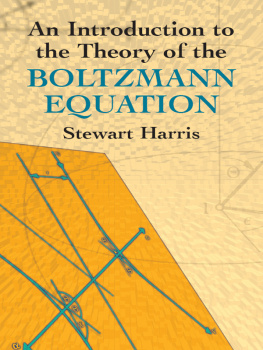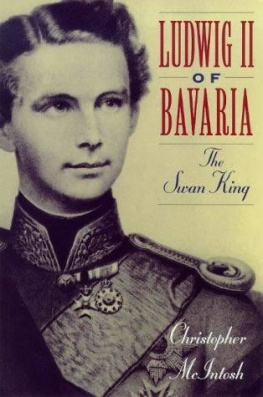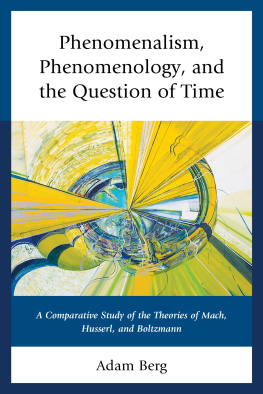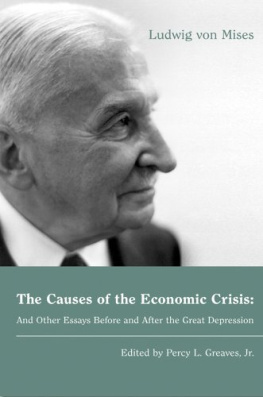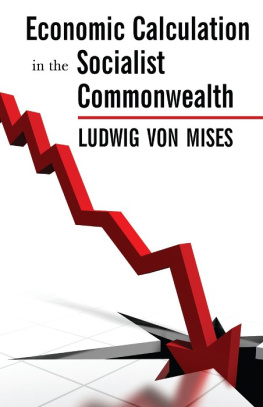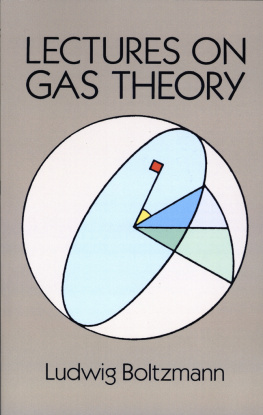Boltzmann Ludwig - Ludwig Boltzmann: the man who trusted atoms
Here you can read online Boltzmann Ludwig - Ludwig Boltzmann: the man who trusted atoms full text of the book (entire story) in english for free. Download pdf and epub, get meaning, cover and reviews about this ebook. City: Oxford, year: 2008;2006, publisher: Oxford University Press USA - OSO, genre: Science. Description of the work, (preface) as well as reviews are available. Best literature library LitArk.com created for fans of good reading and offers a wide selection of genres:
Romance novel
Science fiction
Adventure
Detective
Science
History
Home and family
Prose
Art
Politics
Computer
Non-fiction
Religion
Business
Children
Humor
Choose a favorite category and find really read worthwhile books. Enjoy immersion in the world of imagination, feel the emotions of the characters or learn something new for yourself, make an fascinating discovery.

- Book:Ludwig Boltzmann: the man who trusted atoms
- Author:
- Publisher:Oxford University Press USA - OSO
- Genre:
- Year:2008;2006
- City:Oxford
- Rating:3 / 5
- Favourites:Add to favourites
- Your mark:
- 60
- 1
- 2
- 3
- 4
- 5
Ludwig Boltzmann: the man who trusted atoms: summary, description and annotation
We offer to read an annotation, description, summary or preface (depends on what the author of the book "Ludwig Boltzmann: the man who trusted atoms" wrote himself). If you haven't found the necessary information about the book — write in the comments, we will try to find it.
Ludwig Boltzmann: the man who trusted atoms — read online for free the complete book (whole text) full work
Below is the text of the book, divided by pages. System saving the place of the last page read, allows you to conveniently read the book "Ludwig Boltzmann: the man who trusted atoms" online for free, without having to search again every time where you left off. Put a bookmark, and you can go to the page where you finished reading at any time.
Font size:
Interval:
Bookmark:
Ludwig Boltzmann

Ludwig Boltzmann at the age of 58, when he was a professor in Vienna.
The Man Who Trusted Atoms
CARLO CERCIGNANI
Dipartimento di Matematica
Politecnico di Milano


Great Clarendon Street, Oxford OX2 6DP
Oxford University Press is a department of the University of Oxford.
It furthers the Universitys objective of excellence in research, scholarship,
and education by publishing worldwide in
Oxford New York
Auckland Cape Town Dar es Salaam Hong Kong Karachi
Kuala Lumpur Madrid Melbourne Mexico City Nairobi
New Delhi Shanghai Taipei Toronto
With offices in
Argentina Austria Brazil Chile Czech Republic France Greece
Guatemala Hungary Italy Japan Poland Singapore
South Korea Switzerland Thailand Turkey Ukraine Vietnam
Oxford is a registered trade mark of Oxford University Press
in the UK and in certain other countries
Published in the United States
by Oxford University Press Inc., New York
Carlo Cercignani 1998
The moral rights of the author have been asserted
Database right Oxford University Press (maker)
First published 1998
First published in paperback 2006
All rights reserved. No part of this publication may be reproduced,
stored in a retrieval system, or transmitted, in any form or by any means,
without the prior permission in writing of Oxford University Press,
or as expressly permitted by law. or under terms agreed with the appropriate
reprographics rights organization. Enquiries concerning reproduction
outside the scope of the above should be sent to the Rights Department,
Oxford University Press, at the address above
You must not circulate this book in any other binding or cover
and you must impose this same condition on any acquirer
British Library Cataloguing in Publication Data
Data available
Library of Congress Cataloging in Publication Data
Cercignani, Carlo.
Ludwig Boltzmann: the man who trusted atoms / Carlo Cercignani.
Includes bibliographic references and index.
1. Boltzmann. Ludwig, 18441906. 2. Atomic structureHistory.
3. PhysicistsAustriaBiography. I. Title.
QC16.B64C47 1998 530.092dc21 9817743
Printed in Great Britain
on acid-free paper by
Biddles Ltd,
Kings Lynn, Norfolk
ISBN 0198501544 9780198501541
ISBN 0198570643 (Pbk.) 9780198570646 (Pbk.)
1 3 5 7 9 10 8 6 4 2
To my daughter Anna,
who helped me through Boltzmanns dense German
Our now standard picture of matter, as presented by the physics of today, tells us that ordinary macroscopic materials are made up of atoms. Although the essentials of this picture go back to early Greek times, its general acceptance is remarkably recent. From about the middle of the nineteenth century, a gradually increasing number of physicists were indeed coming to accept the reality of atoms, but there were still a great many who regarded this atomic hypothesis as merely a convenient fiction which did not reflect any genuine reality at a submicroscopic level.
This hypothesis did, nevertheless, enable (non-obvious) macroscopic qualities of substances to be deduced. In principle, knowing the laws governing the individual atoms provides a means for deducing the overall properties of materials. Yet, there is no remotely practical procedure for calculating the behaviour of a macroscopic body from a detailed calculation of the motions of all of its constituent atoms. The number of atoms making up any ordinary macroscopic system is far too enormous. A cubic centimetre of air, for example, contains some 1019 atoms. Thus, to deduce how a macroscopic material must behave, according to our standard picture, it is necessary to employ statistical arguments. The laws governing macroscopic behaviour are obtained from the forming of appropriate statistical averages of physical parameters of individual atoms. Such procedures were beginning to be worked out by a number of physicists in the second half of the nineteenth century, but the outstanding figure among these was Ludwig Boltzmann.
Boltzmann stands as a link between two other great theoretical physicists: James Clerk Maxwell in the nineteenth century and Albert Einstein in the twentieth. Maxwell, who is best known for his discovery of the laws governing electric and magnetic fields and light, first found the formula for the probability distribution of velocities of particles in a gas in equilibrium, but it was Boltzmann who derived the equation governing the dynamical evolution of the probability distribution, according to which the state of a gas, not necessarily in equilibrium, will actually change. Boltzmanns ideas were central to Max Plancks later analysis of black body radiation at the turn of the century, in which he introduced the quantum of action, thereby firing the opening shot of the quantum revolution. In 1905, Einstein not only picked up on this idea and developed it further (in effect showing that the atomic hypothesis applied even to light itself!) but was also influenced by Boltzmanns concepts in two of his other famous papers of 1905, one in which he provided a method of determining molecular dimensions and the other in which he explained the nature of Brownian motion, whereby small particles in suspension in a fluid jiggle around owing to the impact of the molecules that constitute the fluid. Both of these papers gave enormous support to the atomic hypothesis, leading to the confidence that we now feel in this picture of reality.
The Boltzmann equation was also mathematically important, in being the first equation describing the time-evolution of a probability. But it was also fundamental in other ways. It opened up profound issues of physical significanceand even of deep philosophical interestsome of which are only partially resolved even today. For unlike the underlying dynamical equations governing the constituent particles themselves, the Boltzmann equation does not remain unchanged when the direction of time is reversed. The time-asymmetry of the Boltzmann equation arises as an aspect of the second law of thermodynamics, according to which the entropy of a system out of equilibrium increases with time. The crude meaning of the term entropy is disorder; so the second law tells us, roughly speaking, that the order in a system is continually being reduced. But it was another of Boltzmanns fundamental contributions to give precision to the very notion of entropy, by identifying it with a specific multiple of the logarithm of the volume in phase space defined by the macroscopic parameters specifying the state of the system. Accordingly, Boltzmann showed how the second law could become amenable to precise mathematical treatment.
How can it be that a time-asymmetrical dynamical equation can arise, describing the overall behaviour of some macroscopic system, when its constituent particles all satisfy time-symmetrical laws? Boltzmann thought deeply about these issues, in the face of much contemporary criticism, and realized (correctly) that the origin of the asymmetry must be traced back to a highly special state in the remote past, and must ultimately have its roots in cosmological considerations. However, virtually nothing was known about cosmology in Boltzmanns day, so he was in no position to move that part of the argument much further than this, except for the introduction of some intriguing but speculative ideas. These issues are very much alive today, when a good deal is now known about the overall spatial and temporal nature of the actual universe; for they tell us something very significant about the nature of the universes big bang origin, and about the as yet unknown physical principles which came importantly into play at that crucial moment.
Next pageFont size:
Interval:
Bookmark:
Similar books «Ludwig Boltzmann: the man who trusted atoms»
Look at similar books to Ludwig Boltzmann: the man who trusted atoms. We have selected literature similar in name and meaning in the hope of providing readers with more options to find new, interesting, not yet read works.
Discussion, reviews of the book Ludwig Boltzmann: the man who trusted atoms and just readers' own opinions. Leave your comments, write what you think about the work, its meaning or the main characters. Specify what exactly you liked and what you didn't like, and why you think so.




